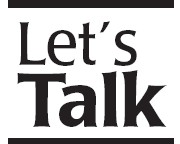If you had to describe yourself in four words, what four words would you choose? Would you state your gender, your race, your marital status, your parenting status, your religious affiliation, your talents, your profession? The answer to the question could tell a lot about what is most important to you and how you see your place in the world.
Two things babies learn very early are their names and who they are closest to – Mommy, Daddy, brothers, sisters. As they grow, their identities continue to grow. They become able to identify themselves by age and where they belong. They commonly answer questions regarding how old they are, what grade they are in, where they go to school, who they are friends with, and what extracurricular activities they are involved in.
Our identities continue to grow as we move through adulthood. We add roles – college student, professional, spouse or life partner, homeowner, parent.
What happens when we lose some of our roles as our lives change or gain new identities we never wanted? We might lose our athletic prowess after a large part of our identity revolved around sports. We might grapple with health problems and add new identities we don’t want – diabetic, cancer patient, addict. We might become a divorcee or a step-parent and not know how we will be accepted as such. Most people in America eventually retire and lose their status as professionals – this can be hard, especially when one of the first ways American adults identify themselves is by what they do for a living. As we age, how we view ourselves might change—for better or for worse.
How much power do we have to determine our own identity and how can we deal positively with the identity changes that come with life?
Being clear about our losses and our potential can be helpful. If I am newly retired, it might be hard to move to Cook County and no longer be able to say, “Hi, I’m So-and-So and I am a college professor.”
What elements of ourselves that we may have never cultivated can we allow to blossom? Cook County is a great place to try new things—people gather together to do all sorts of things from quilting to Dragon Boat racing to making Norwegian potato sausage. When we transition from one part of our lives to the next, we have an opportunity to grab a hold of new identities and explore parts of ourselves that we might not have taken the time to explore before.
Even weeds sometimes bear beautiful flowers. Losses can call us into looking for life in new places. We may meet new people we would not have known before and find richness in sharing our struggles with others. We might find the artist within. We might find the time to write that book we always wanted to write.
We keep changing, and that can be a very good thing.
Each month a mental health therapist will discuss an area of mental health in Let’s Talk. This week’s contributor is Jane Howard, a licensed psychologist with a private practice in Grand Marais. She has had the opportunity to work with people of all ages on a wide variety of life issues ranging from homelessness, mental illness, domestic violence and sexual abuse to wellness and substance abuse prevention.



Leave a Reply